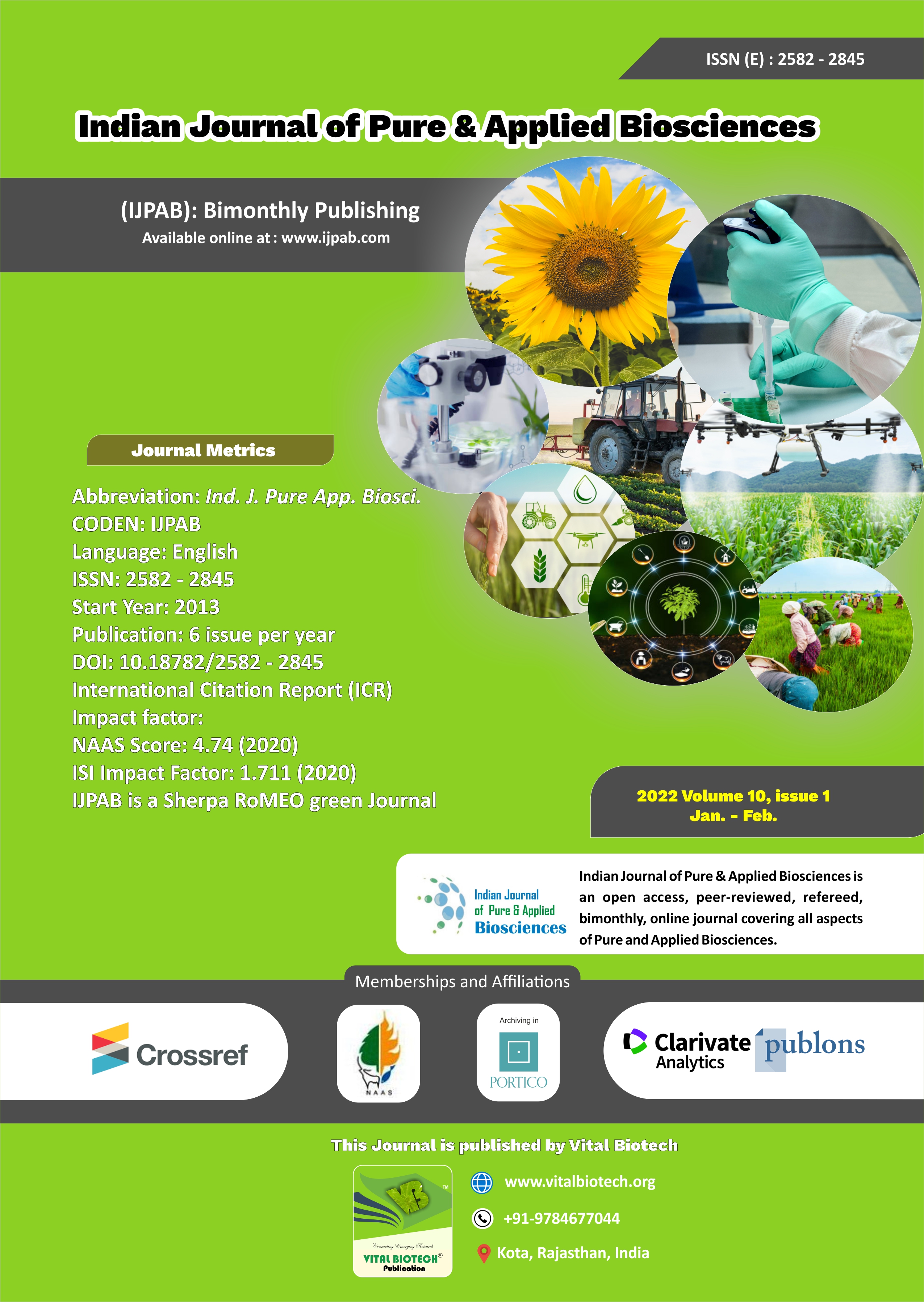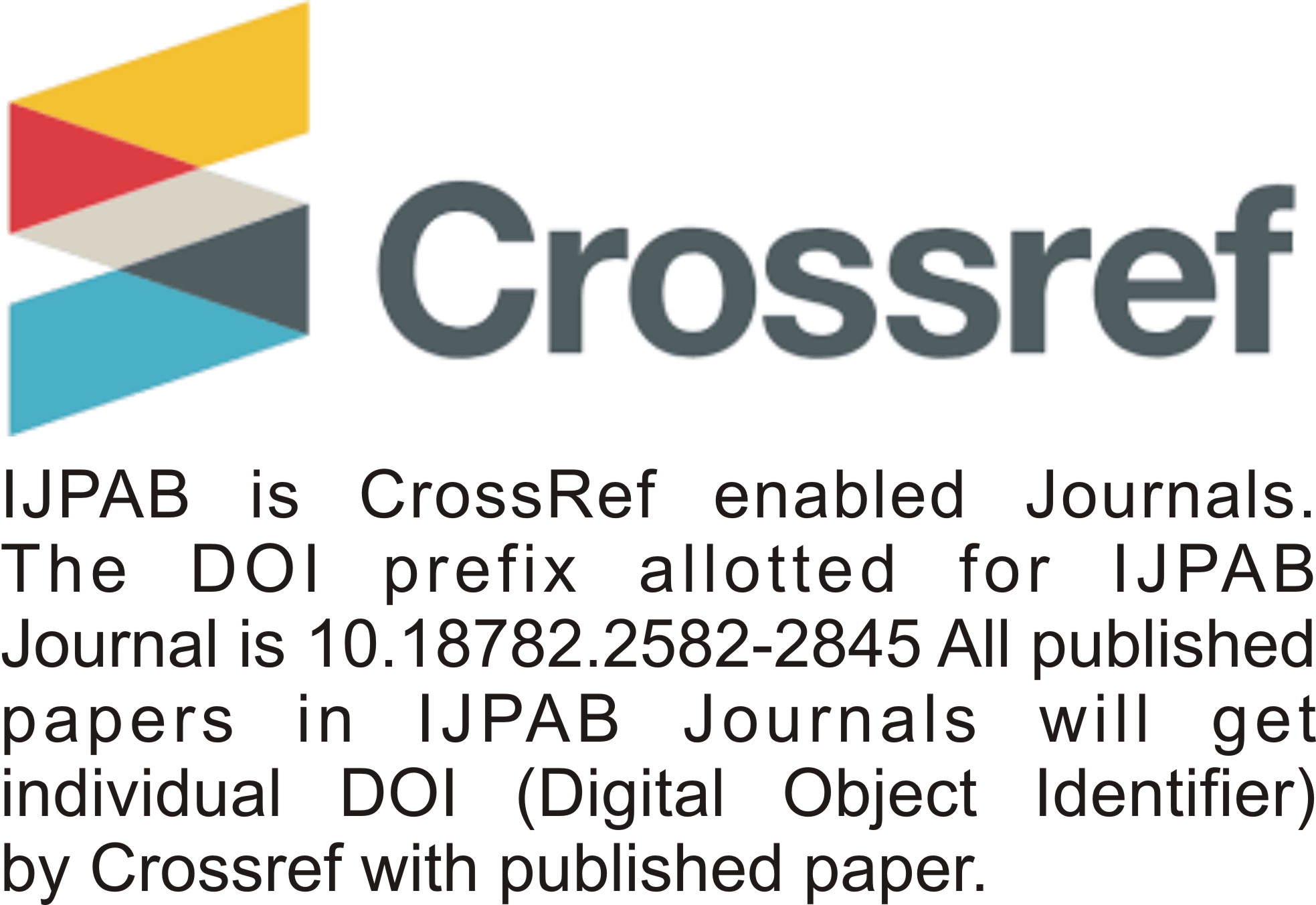-
No. 772, Basant Vihar, Kota
Rajasthan-324009 India
-
Call Us On
+91 9784677044
-
Mail Us @
editor@ijpab.com
Indian Journal of Pure & Applied Biosciences (IJPAB)
Year : 2022, Volume : 10, Issue : 1
First page : (1) Last page : (7)
Article doi: : http://dx.doi.org/10.18782/2582-2845.8860
Effect of Drought Condition on the Peduncle Mobilization and Yield of Wheat (Triticum aestivum)
Komal1, Navneet Kumari2, Savita3 and Kirpa Ram3*
1Department of Botany, AIHM Jat College, Rohtak
2Department of Microbiology, Maharashi Dayanand University, Rohtak
3Department of Botany, Baba Mastnath University, Rohtak
*Corresponding Author E-mail: dr.kirparamjangra@gmail.com
Received: 17.12.2021 | Revised: 8.02.2022 | Accepted: 15.02.2022
ABSTRACT
Drought is the major abiotic stress world widely thwart the crops growth and development year by year. Every growth stage of wheat from vegetative to reproductive stages effect by the water scarcity. Keeping in the view present investigation was planned with four wheat genotype viz., AKAW-3717, C-306, DHTW-60 and KUNDAN with three replicas at the pot house of IAHM Jat college, Rohtak with complete randomized design. Drought application showed statistical significant reduction in crop phenological attributes, relative water content, peduncle reserve mobilization, biomass plant-1 (g), grain weight spike-1 (g), grain yield plant-1 (g) and Test Weight (g). Genotype DHTW-60 was found minimum in yield forfeit under both irrigated and non-irrigated condition. Therefore, it can be utilised for further study and cultivation in water scarcity areas.
Keywords: Drought, Peduncle reserve mobilization, Yield and relative water content.
Full Text : PDF; Journal doi : http://dx.doi.org/10.18782
Cite this article: Komal, Kumari, N., & Savita & Ram, K. (2022). Effect of Drought Condition on the Peduncle Mobilization and Yield of Wheat (Triticum aestivum), Ind. J. Pure App. Biosci.10(1), 1-7. doi: http://dx.doi.org/10.18782/2582-2845.8860


